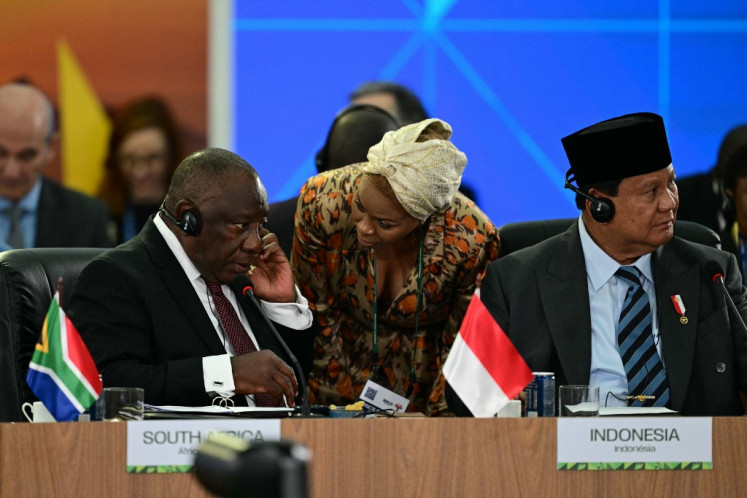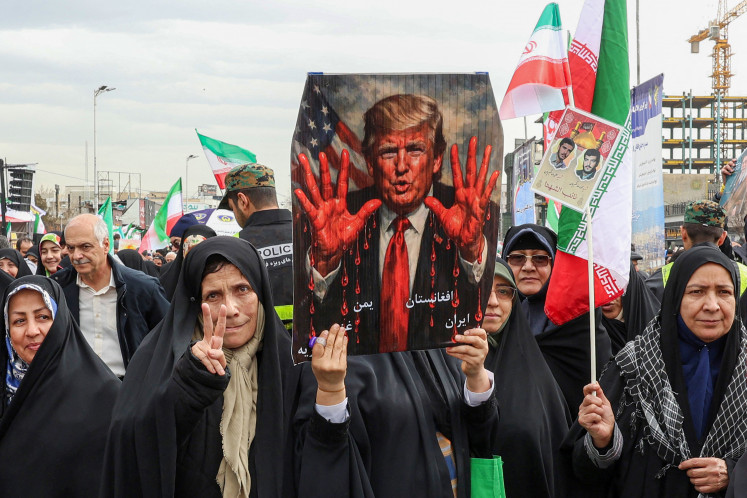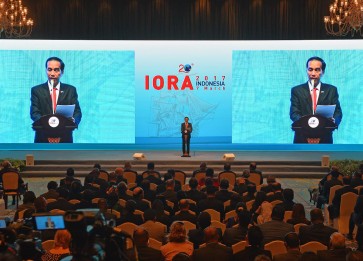Popular Reads
Top Results
Can't find what you're looking for?
View all search resultsPopular Reads
Top Results
Can't find what you're looking for?
View all search resultsInsight: Promises and pitfalls of Indonesia's faith in multilateralism
Indonesia is a member of 198 international institutions. With stretched resources, it is little wonder that in late 2016, Jokowi ordered a review of Indonesia’s role in at least 75 of them.
Change text size
Gift Premium Articles
to Anyone
P
resident Joko “Jokowi” Widodo has just finished his South Asian tour, which took him to Sri Lanka, India, Pakistan, Bangladesh and Afghanistan. His stop in India to attend the ASEAN-India Commemorative Summit was particularly noteworthy, as he laid out Indonesia’s vision for a “stable, peaceful and prosperous” Indo-Pacific regional architecture based on the principles of openness, transparency and inclusion.
Jokowi also called for development and connection between ASEAN-led mechanisms (e.g. the East Asia Summit, or EAS) and instruments (e.g. the Treaty of Amity and Cooperation, or TAC) with the Indian Ocean Rim Association (IORA) to “bridge and integrate” the Indian and Pacific Oceans.
Let us think of this Indo-Pacific multilateral architecture as the “Indo-Pacific with Indonesian characteristics.” Whether and how Jakarta can bring this grand strategic vision to life remains to be seen, but at the very least it has put forth a distinct Indo-Pacific vision.
This vision is an alternative to and could coexist with other Indo-Pacific geopolitical constructs, from China’s Belt and Road Initiative to India’s Act East and Japan’s Free and Open Indo-Pacific. It, too, does not challenge other mechanisms, such as the revived Quadrilateral Security Dialogue between India, Japan, Australia and the United States.
Indeed, as Foreign Minister Retno Lestari Priansari Marsudi noted in her annual foreign policy speech in January, Indonesia wants an “Indo-Pacific cooperation umbrella.”
This alternative Indo-Pacific vision, however, rests on our foreign policymakers’ conviction that institutions, particularly multilateral forums, are the answer to our foreign policy questions. As many of our foreign policy accomplishments were made through such institutions, they instinctively tend to be our first response to geopolitical challenges.
After all, as international relations scholars tell us, international institutions essentially help states reduce uncertainty, lower transaction costs and solve collective-action problems. Multilateral forums, in short, are supposed to make it easier, cheaper and more effective for states to cooperate on a set of common concerns.


















